Ballochmyle Cup and Ring Marks
These ancient symbols freckling a Scottish cliff remained hidden for centuries.
These Scottish cliffs form a tapestry of Neolithic and Bronze Age art. Given the high amount of quarrying that took place nearby, it’s incredible they haven’t been destroyed.
Cup and ring marks—concave compressions surrounded by concentric circles that have been chiseled into stone—are common throughout the United Kingdom and Northern Europe. But unlike at other sites, these cup and ring marks were carved into a nearly vertical surface instead of atop a flat rock.
The oldest of the Ballochmyle cup and ring marks were created between 4000 and 1500 BC, though it’s believed some medieval additions were added to the mix. The rock art covers two “panels” of the cliff. Hundreds of circular shapes speckle its surface. Some carvings are rather shallow, while others were clearly hammered with a heavier touch. You can also spot square-shaped cups and ringed stars, as well as deer-like creatures believed to have been added in the Middle Ages.
The carvings remained hidden behind soil and shrubbery for decades. They weren’t officially recorded until 1986, when workers from the Kingencleugh Estate were clearing vegetation along a stream. However, as evidenced by the “1751” etched into the rock near some of the circles, they’d certainly been discovered earlier. It’s likely more cup and ring marks are still concealed behind piles of dirt.
Know Before You Go
Park at N55° 30.053’ W4° 21.436’ and follow the River Ayr Path west. You go across a little wooden bridge and turn right into the wooded area, bear right along these cliffs, and you will soon find it. Wear suitable shoes for walking.


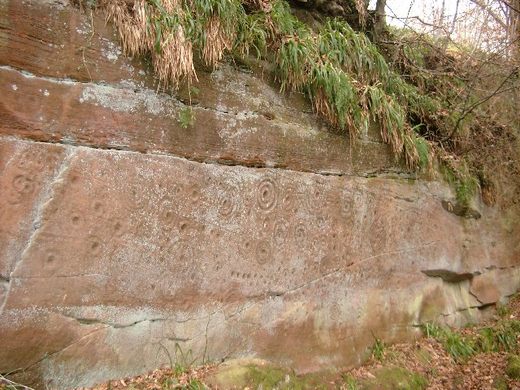
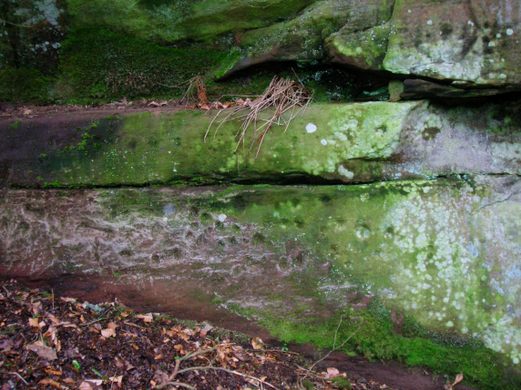
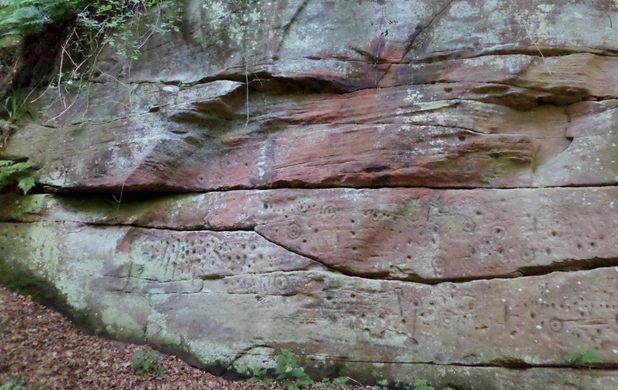
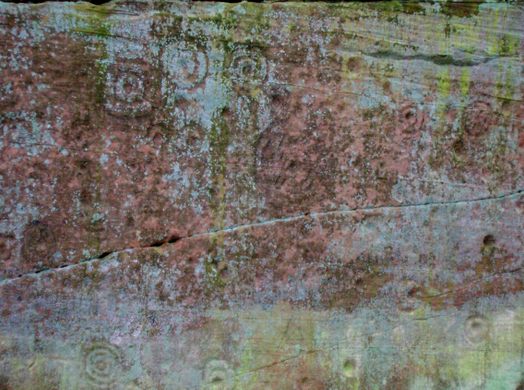
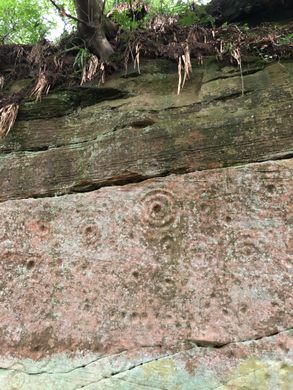




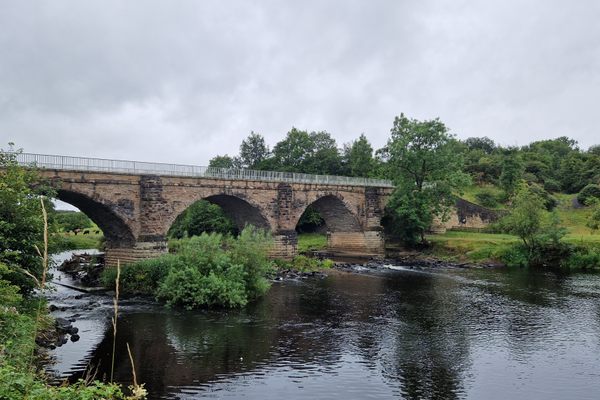




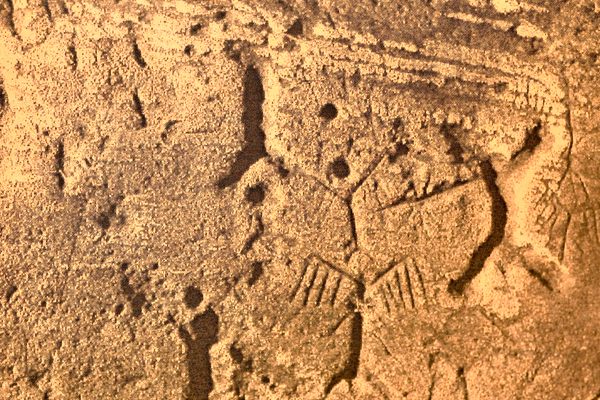


Follow us on Twitter to get the latest on the world's hidden wonders.
Like us on Facebook to get the latest on the world's hidden wonders.
Follow us on Twitter Like us on Facebook